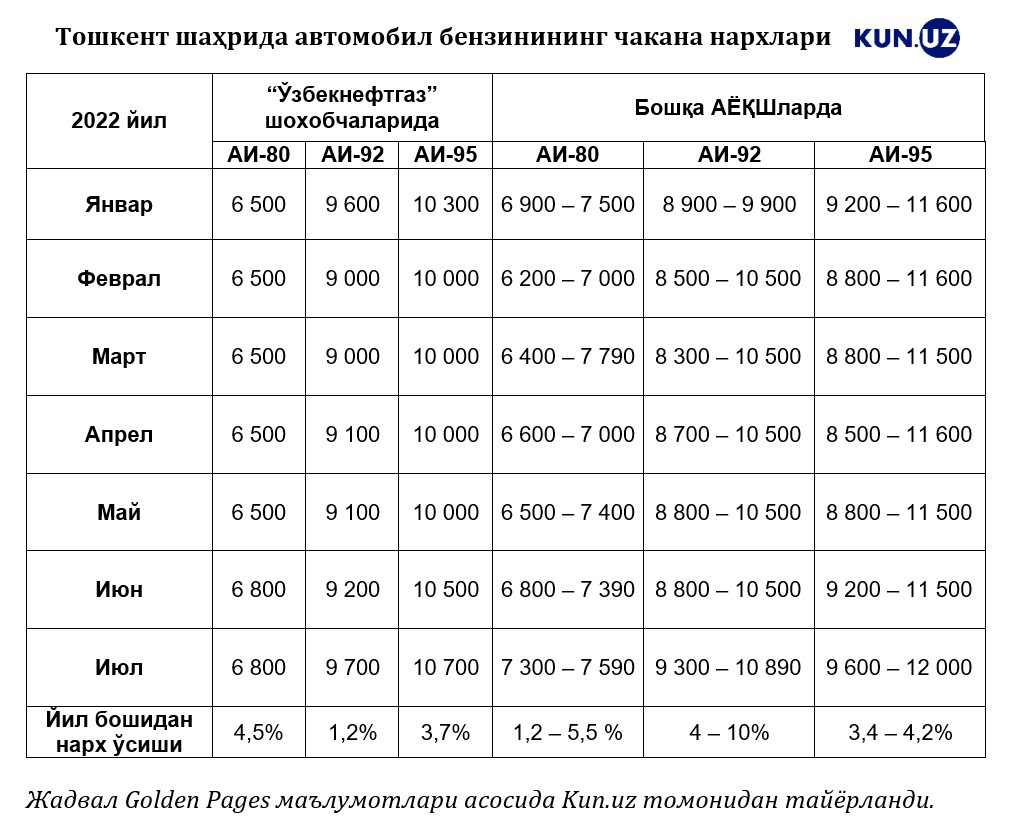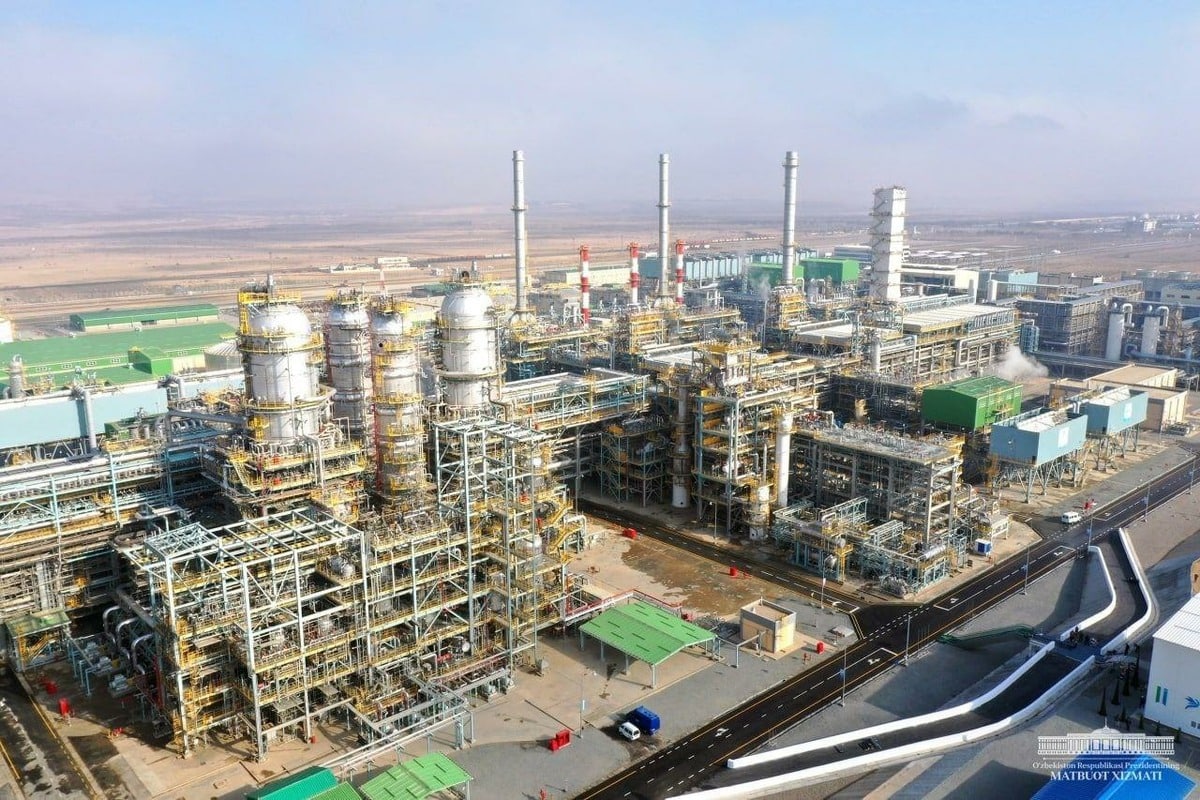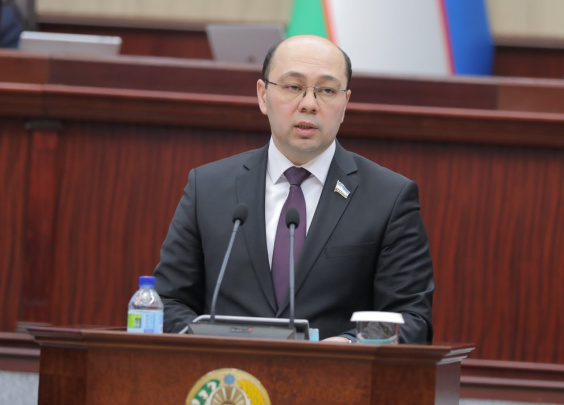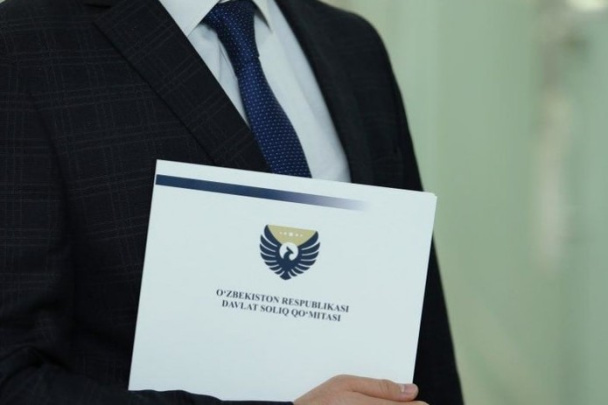In Uzbekistan, fuel products – gasoline and diesel – have become more expensive. The price of AI-80 fuel in the branches has reached 8,600 soums. At the same time, the problem of gasoline shortage appeared even in the capital.
According to the information of Golden Pages, which monitors the prices of large gas filling stations and more than 30 individual stations in Tashkent, by July, there was a shortage of gasoline at more than 10 stations in the city.

Uzbekneftgaz says that it has not changed the prices in its branches. The company last increased the price of AI-80 from 6,500 to 6,800 soums at the end of May – an increase of 4.5% since the beginning of the year. In other branches in Tashkent, since the beginning of the year, the price of AI-80 has increased by 5.5% (as of July 6 – Golden Pages conducted the last price monitoring on this day).
Gasoline imports have decreased
On July 8, Uzbekneftgaz explained the increase in prices at private outlets due to the decrease in the import of high-octane gasoline.
Reportedly, the decrease in imports and the increase in the price of high-octane gasoline are putting pressure on the price of domestic AI-80. In other words, when large quantities of imported AI-91 and higher gasoline become more expensive, some drivers switch to filling AI-80, and the increase in demand in this segment leads to an increase in prices.
In the first 7 days of July, the demand for AI-80 gasoline in the republic was 1.2 times higher than in the corresponding period of the previous year.
Kun.uz appealed to the State Statistics Committee for information on how much gasoline import decreased, but did not receive an answer for three days.
According to the Statistics Committee, in the first half of the year, the production volume of automobile gasoline increased by 1.8% compared to the corresponding period of the previous year (it reached 562.7 thousand tons). Even when comparing the statistics of May-June 2021 and 2022 separately, no significant difference is visible.
In Uzbekistan, gasoline is mainly produced at oil refineries in Bukhara and Fergana (Altiarik also has a refinery). According to Uzbekneftgaz information, as of July 5, the Bukhara Oil Refinery under the company’s control has more than fulfilled the 2022 forecast indicators for gasoline (109.5%) and diesel fuel (113.2%).
According to the information received by Kun.uz from the Ministry of Energy, the activity of the Fergana Oil Refinery has slowed down significantly in recent months.
Starting from 2022, tax rates for the use of subsoil have been reduced by 2-3 times for oil and gas (only for private companies). It is not known how effective such a concession was in increasing the supply in the market, but it is known that 80% of the oil produced in Uzbekistan belongs to the private company “Industrial Energy Group”.
Since January, the price of Ai-80 gasoline has increased by 11%, while the price of diesel has increased by almost 50%.
1 ton of diesel was sold at the exchange for 10.8 million soums at the beginning of the year, and for 16.1 million soums on July 20 (an increase by 149.07%). Diesel fuel also increased significantly in price mainly in June-July.
GTL plant has started producing diesel, but the price continues to rise

Economists Otabek Bakirov and Mirkomil Kholboyev point out that the opening of the GTL plant did not lower the price of diesel. In fact, a ton of imported GTL brand diesel was sold for 15.6 million soums at the July 1 auction, while the price of this brand of fuel at the July 21 auction was 16.6 million soums. The price increased by 1 million in 20 days.
For comparison, on July 21, diesel fuel was sold on the Kazakhstan exchange for 250.7 thousand tenge per ton, which is approximately 5.6 million soums. That is, diesel in neighboring Kazakhstan is almost 3 times cheaper than in Uzbekistan.
The GTL plant in Guzor district was built for $3.4 billion. In 2018, when the construction of the plant was underway, the then Chairman of Uzbekneftgaz, Bakhrom Ashrafkhanov, said that the launch of the project would lead to lower prices of gasoline and other oil products.
According to Otabek Bakirov, the problem of high fuel prices in Uzbekistan, especially diesel, is due to the fact that the demand is too large, and the supply is artificially reduced. He says that “import channels are completely controlled by the monopolized informal/formal sector, intertwined with the state – that is, there is no open market”.
“If the prices of flour, meat and eggs, which are basic market goods, go up a little, they immediately take measures and start controlling the market. But everyone is silent about diesel, which is heavily monopolized. No one thinks that the price of diesel will increase the price of flour, meat and eggs tomorrow,” the economist said.
Mirkomil Kholboev noted that diesel production in Uzbekistan is decreasing. Referring to the reports of the Statistics Committee, he wrote that in January-May 2022 and 2021, the diesel production rate decreased by 30% compared to the corresponding period of the previous years.
“In other words, the volume of diesel production has decreased by about 50% in the last 2 years compared to 5 months. We do not yet see that the launch of the plant, which was built with great expectations, is causing any positive change in the volume of diesel production. The plant was expected to produce 724,000 tons of diesel per year when it was put into operation, and as a result, our country would get rid of its dependence on diesel imports. But for some reason, the volume of diesel production is not increasing, but is decreasing dramatically,” Mirkomil Kholboyev said.
Export is suspended
Gazeta.uz, citing its sources, reports that the export of gasoline and diesel fuel is temporarily limited starting from July 15, in accordance with the protocol of the Cabinet of Ministers.
According to the source of the publication, enterprises in Uzbekistan exported 15-16.5 tons of gasoline in the last month, which is equal to “5-6 days’ need” of the country.
After export restrictions, Uzbekneftgaz has increased the volume of gasoline to be traded on the stock market, which is expected to “lead to a drop in prices”.
According to the Statistics Committee, in 2021, Uzbekistan exported oil products worth $78.7 million, which is 74.3% more than in 2020. The main buyers were Afghanistan and Tajikistan.
It should be noted that despite the suspension of state regulation of gasoline and diesel fuel prices in Uzbekistan, a number of economists say that a free market is not being formed. The fact that fuel prices in Uzbekistan are significantly higher than in neighboring republics is also seen as a sign of artificial barriers to entry into the import market. Also, such hurdles can be the basis for questions regarding the effectiveness of the energy projects being implemented.





